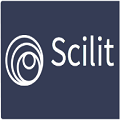Journal of Business Management and Information Systems (JBMIS) ISSN: 2394-3130 is a double-blind peer-reviewed Bi-Annual (January to June & July-December) research journal aims to arm its readership with the latest research with a forecast for new management thoughts and commentary in all areas associated with business management and information systems, with an informed, multi-disciplinary and international approach. All articles published in the journal must make a strong empirical and/or theoretical contribution. All empirical methods including (but not limited to) qualitative, quantitative, or combination methods are represented. Articles published in the journal are clearly relevant to management theory and practice and identify both a compelling practical management issue and a strong theoretical framework for addressing it. The journal invites papers from all management disciplines; in particular business, finance, management information systems, which shed further light of the business decisions.
The journal has an international editorial and advisory board, representing all areas of management and information systems providing a broad structure to add value to business decisions from a wide range of perspectives. The journal is a direct key benefit to academicians, practitioners and students who are interested in the latest innovations and research into the financial decision making process.
ISSN: 2394-3130 | Frequency: Bi-Annual (Jan-Jun, Jul-Dec)| Double-blind peer reviewed| DOI Prefix: 10.48001 | Start Year: 2014 | Format: Online | Language: English | Subject: Management, Commerce, Information Systems
The Journal content published by QTanalytics on the website are licensed under a Creative Commons Attribution-NonCommercial 4.0 International License  .
.
Subjects: Business, Business, Finance & Economics, Management & Organizational Behavior, Social Sciences, Sociology, Information Systems, Environmental Economics and Management
The focus and scopes of the articles in this journal are :
- Business strategy & policy
- Organizational behavior
- Human resource management
- Organizational theory
- Entrepreneurship
- Research Methods
- Natural Resource Economics and Environment,
- Rural development
- International Economic
- Agribusiness Management,
- Supply and Value Chain management
- Farm Management
- Agricultural Extension and Communication
- Agricultural Sociology
- Rural Community development
- Sustainability
- Statistical Methods
- Business Studies
- Economics and Finance
- Other related topics to Management and Information Systems
![]()
This is an open-access journal, which means that all content is freely available to the user or their institution. Users are allowed to read, download, copy, distribute, print, search, or link to the full texts of the articles, crawl them for indexing, pass them as data to software, or use them for any other lawful purpose without asking prior permission from the publisher or the author. This is in accordance witht the DOAJ definition of open access.
Peer Review Policy
All research papers in this journal will undergo rigorous double blind review process, where both the referee and author remain anonymous throughout the process. All contributors will be initially assessed by the editor for suitability for the journal. Papers deemed suitable are then typically sent to a minimum of two independent expert reviewers to assess the quality of the paper. Only those papers approved by the reviewers will be selected for publication. The criteria for evaluation by the reviewers are Relevance, Methodology, Originality, Research, Conclusions, Policy/ Managerial Implications, References.
Ethics in Publishing
Authors are expected to uphold the highest standards of honesty in their research to preserve the trust in the journal, the integrity of scientific authorship, and the overall scientific process. Maintaining the integrity of research and its presentation involves adherence to good scientific practices, which include:
- Ensuring that the manuscript is not under consideration by more than one journal at the same time.
- Avoiding the publication of the same manuscript in part or full, except in cases where the new submission extends previously published work. In such cases, authors must be transparent about the reuse of material to prevent any perception of text-recycling ("self-plagiarism").
- Refraining from dividing a single study into several parts solely to increase the number of submissions and avoid submitting these to multiple journals or the same journal over time.
- Not fabricating or manipulating data, including images, to support conclusions.
- Ensuring that data, text, or theories from other sources are correctly cited and not presented as the author's own ("plagiarism"). This includes providing proper acknowledgment for material that is closely copied (nearly verbatim), summarized, or paraphrased. Quotation marks should be used for directly copied material, and permission must be obtained for the use of any copyrighted material.
Important note: The journal may use software to screen for plagiarism.
- Before submitting their work, authors must ensure they have explicit consent from all co-authors and, where applicable, from the appropriate authorities or institutions where the research was conducted. All listed authors should have made a significant contribution to the research and be willing to share responsibility and accountability for the results.
- It is essential for authors to accurately establish the group of authors, identify the corresponding author, and determine the order of authors at the time of submission. Post-acceptance changes in authorship or the order of authors are not permitted.
- However, during the revision stage, modifications in authorship or author order may be justified under certain circumstances. In such cases, a detailed explanation for these changes, including the roles of any added or removed authors, must be provided with the revised manuscript. Additional supporting documentation might be required to validate these changes.
- In the event of authorship disputes after manuscript acceptance, requests for author addition or removal will be considered only upon formal notification from a relevant institution or independent body and when there is consensus among all authors involved.
- Authors should also be prepared to provide supporting data or documentation upon request to verify the validity of their findings. This may include raw data, samples, records, etc. However, the provision of sensitive information, such as confidential proprietary data, is not required.
License to Use Journal Articles and Related Content
Unless otherwise indicated, the articles and journal content published by QTanalytics on the website are licensed under a Creative Commons Attribution license (also known as a CC-BY-NC license). This means that you are free to use, reproduce and distribute and transmit an artilce as long as author is attributed and the article is not used for commercial purposes, subject to citation of the original source in accordance with the CC BY-NC - Creative Commons Attribution-NonCommercial License
Ethical Responsibilities of Reviewers
Peer reviewers play a role in ensuring the integrity of the scholarly record. The peer review process depends to a large extent on the trust and willing participation of the scholarly community and requires that everyone involved behaves responsibly and ethically. Peer reviewers play a central and critical part in the peer review process, but may come to the role without any guidance and be unaware of their ethical obligations. Journals have an obligation to provide transparent policies for peer review, and reviewers have an obligation to conduct reviews in an ethical and accountable manner. Clear communication between the journal and the reviewers is essential to facilitate consistent, fair and timely review.
Submission Declaration
Submission of an article implies that the work described has not been published previously (except in the form of an abstract or as part of a published lecture or academic thesis), that it is not under consideration for publication elsewhere, that its publication is approved by all authors and tacitly or explicitly by the responsible authorities where the work was carried out, and that, if accepted, it will not be published elsewhere including electronically in the same form, in English or in any other language, without the written consent of the copyright-holder.
Contributors
All authors must have materially participated in the research and/or article preparation. The statement that all authors have approved the final article should be true and included in the disclosure.
Changes to Authorship
Authors are expected to consider carefully the list and order of authors before submitting their manuscript and provide the definitive list of authors at the time of the original submission. Any addition, deletion or rearrangement of author names in the authorship list should be made only before the manuscript has been accepted and only if approved by the journal Editor. Only in exceptional circumstances will the Editor consider the addition, deletion or rearrangement of authors after the manuscript has been accepted. While the Editor considers the request, publication of the manuscript will be suspended. If the manuscript has already been published in an online issue, any requests approved by the Editor will result in a corrigendum.
Disclaimer
The accountability of the research matter articulated in this journal is entirely of the author(s)concerned. The view expressed in the research papers/articles in this journal does not essentially correspond to the views of the publisher/editor. The publisher/editor of the journal is not liable for errors or any consequences arising from the exercise of information contained in it.






 qtanalyticsindia@gmail.com | Phone: +91-9458270556
qtanalyticsindia@gmail.com | Phone: +91-9458270556